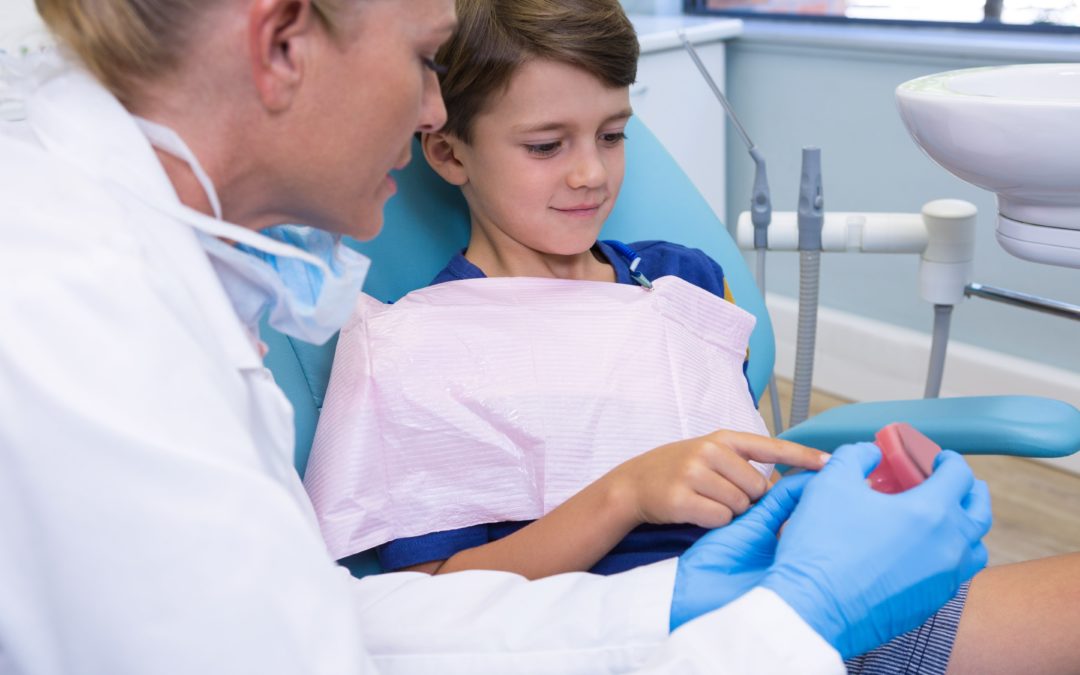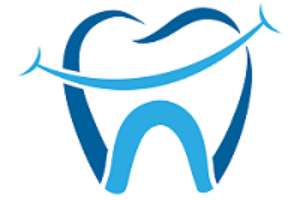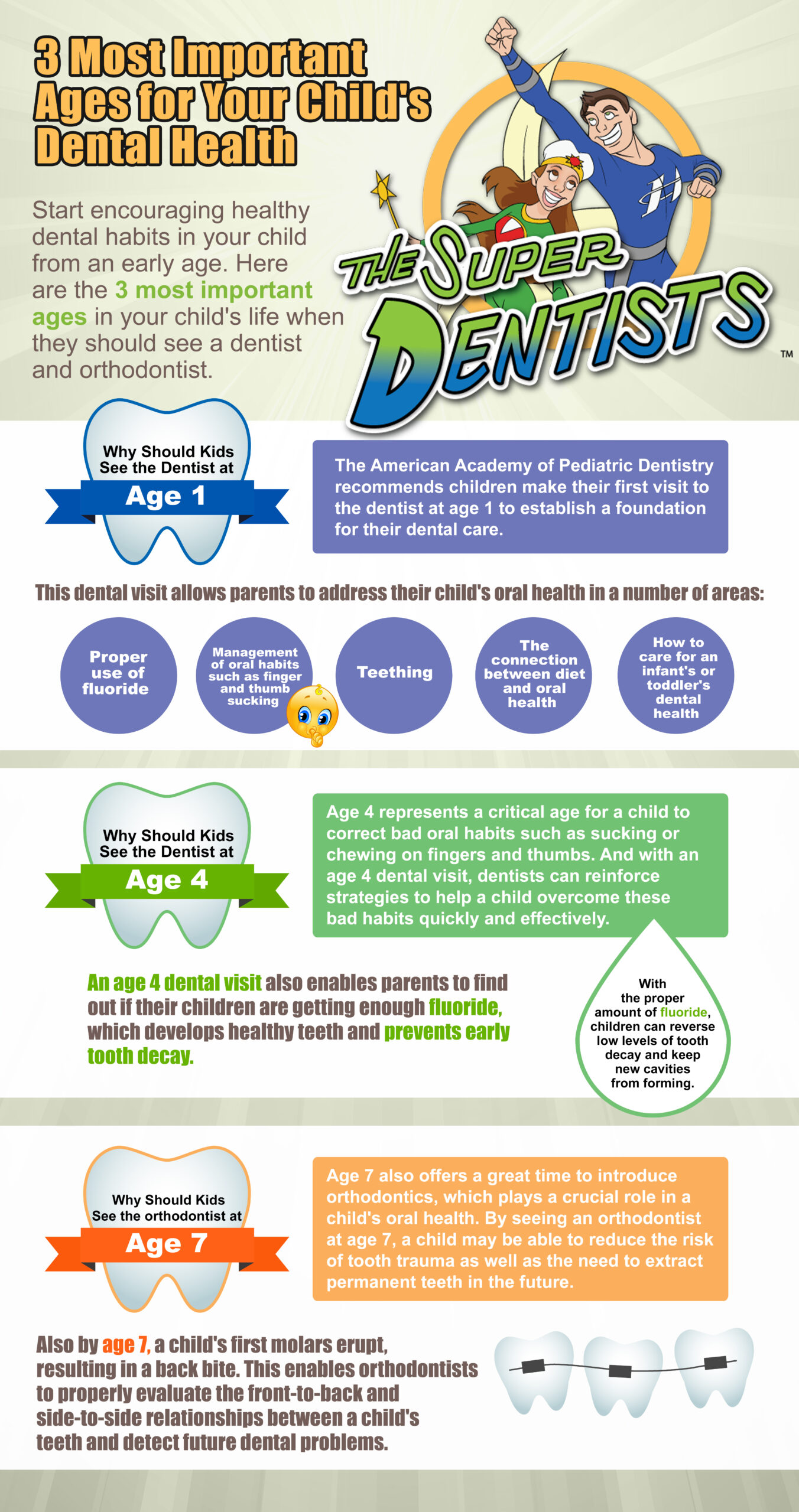When Should Your Child First Visit the Dentist?
Picture this: your little one’s first tooth has made its grand entrance, and you couldn’t be more thrilled. But, have you ever wondered when you should schedule their first dental visit? Well, let me tell you, it’s not as far off as you might think. In fact, it’s just around the corner.
But why is it so important to take your child to the dentist at such a young age? And what can you expect from that first visit? Don’t worry, we’ve got the answers you’re looking for.
So, sit tight and get ready to discover the crucial role early dental visits play in your child’s oral health journey.
Importance of Early Dental Visits
It’s crucial to take your child for their first dental visit at an early age to establish good oral health habits and prevent future dental issues. By starting dental visits early, you can help your child become familiar and comfortable with the dentist, making future visits easier and less stressful. Early dental visits also allow the dentist to monitor your child’s oral health and identify any potential problems before they become more serious.
During the first visit, the dentist will examine your child’s teeth, gums, and mouth. They’ll also clean their teeth and provide guidance on proper oral hygiene techniques. This visit isn’t only important for your child’s dental health but also for their overall well-being. Poor oral health can lead to pain, difficulty eating, and even problems with speech development.
Recommended Age for First Dental Visit
When should you take your child for their first dental visit?
The ideal age for the first visit is around one year old, or within six months of their first tooth erupting.
Early dental care is crucial for your child’s oral health, as it allows the dentist to monitor their development, address any concerns, and provide preventive measures to avoid future dental issues.
Ideal Age for First Visit
Parents are encouraged to schedule their child’s first dental visit around the age of one. This is the ideal time to introduce your child to the dentist and establish good oral health habits from an early age. Here are five reasons why scheduling your child’s first dental visit at around one year old is important:
– Early detection of dental issues: Starting dental visits early allows the dentist to identify any potential problems early on and take necessary preventive measures.
– Establishing a dental routine: By visiting the dentist at an early age, your child will become familiar with the dental office, making future visits less intimidating.
– Education for parents: The dentist can provide guidance on proper oral hygiene techniques and answer any questions or concerns you may have.
– Monitoring growth and development: Regular dental check-ups will help track the growth and development of your child’s teeth and jaws.
– Prevention of dental anxiety: Early positive experiences at the dentist can help prevent dental anxiety in the future.
Importance of Early Dental Care
Scheduling your child’s first dental visit at an early age is crucial for establishing a strong foundation of oral care. By bringing your child to the dentist at a recommended age, you’re ensuring that their teeth and gums receive the necessary attention and preventive care they need.
Early dental visits allow the dentist to monitor the growth and development of your child’s teeth, identify any potential issues, and provide timely interventions if required. Moreover, these visits help familiarize your child with the dental environment, reducing their anxiety and fear in the future.
It also allows the dentist to educate both you and your child on proper oral hygiene techniques, such as brushing and flossing, ensuring that your child maintains good oral health habits from a young age.
Benefits of Early Prevention
By bringing your child for their first dental visit at the recommended age, you’re taking a proactive approach to ensuring their oral health and setting the stage for a lifetime of healthy smiles. Here are some benefits of early prevention:
– Early identification of dental issues: Regular dental visits allow the dentist to detect any potential problems early on, such as cavities or misalignment.
– Establishing good oral hygiene habits: Starting dental visits early helps children develop a positive attitude towards oral care and learn the importance of brushing and flossing.
– Preventing future dental complications: Early prevention can help avoid more extensive treatments later in life, saving you time, money, and potential discomfort.
– Monitoring growth and development: Dental visits allow the dentist to monitor the growth and development of your child’s teeth and jaws, ensuring they’re on track.
– Building a trusting relationship: Regular dental visits from an early age help your child build trust with their dentist, making future visits more comfortable and less stressful.
Taking your child to the dentist early on has numerous benefits that can positively impact their oral health for years to come.
Benefits of Early Oral Health Monitoring
Early oral health monitoring provides numerous benefits for your child’s overall dental well-being. By starting regular dental check-ups at a young age, you’re setting a foundation for a lifetime of good oral health habits.
One of the main advantages of early oral health monitoring is the opportunity to detect any dental issues at an early stage. This allows for prompt treatment, preventing the problem from worsening and potentially causing more pain and discomfort for your child. Additionally, early monitoring allows the dentist to identify any potential orthodontic issues, such as misaligned teeth or overcrowding, which can be addressed early on to prevent more extensive orthodontic treatment in the future.
Another benefit of early oral health monitoring is the opportunity for the dentist to provide guidance and education on proper oral hygiene techniques. By teaching your child how to brush and floss correctly, the dentist helps establish good oral hygiene habits that can last a lifetime. Regular dental visits also offer a chance for the dentist to assess the impact of diet and lifestyle habits on your child’s oral health. They can provide guidance on nutrition and offer strategies to prevent tooth decay and gum disease.
Furthermore, early oral health monitoring allows the dentist to track the growth and development of your child’s teeth and jaw. This helps in identifying any potential issues that may require orthodontic intervention. By detecting and addressing these problems early on, you can help ensure that your child’s teeth and jaw develop properly, minimizing the need for extensive orthodontic treatment in the future.
Detecting and Preventing Potential Issues
To ensure your child’s dental well-being, it’s crucial to detect and prevent potential issues early on during their first dentist visit. By addressing any problems early, you can prevent further complications and ensure your child maintains a healthy smile.
Here are five key ways in which detecting and preventing potential issues can benefit your child’s dental health:
– Early detection of tooth decay: Dentists can identify the early signs of tooth decay and provide necessary treatments to prevent further damage.
– Identification of orthodontic issues: The dentist can assess your child’s bite and alignment, detecting any potential orthodontic issues that may require intervention.
– Detection of gum disease: Regular dental visits allow for the detection and prevention of gum disease, which can lead to tooth loss if left untreated.
– Prevention of oral habits: Dentists can provide guidance on how to address oral habits such as thumb sucking, which can affect dental development.
– Education on oral hygiene: Dentists can educate both you and your child on proper oral hygiene practices, including brushing, flossing, and healthy eating habits.
Establishing Good Oral Care Habits Early
Start your child’s dental journey on the right track by establishing good oral care habits early. Teaching your child to take care of their teeth from a young age is crucial for their oral health in the long run. By instilling good habits early on, you’re setting them up for a lifetime of healthy teeth and gums.
One of the first habits to establish is regular brushing. Encourage your child to brush their teeth at least twice a day, using a pea-sized amount of toothpaste. Show them the proper technique of brushing in small circular motions to effectively clean their teeth and gums. Make brushing fun by using colorful toothbrushes and playing their favorite songs while they brush.
Another important habit is flossing. Start flossing your child’s teeth as soon as they’ve two teeth that touch each other. As they grow older, teach them how to floss on their own. Regular flossing helps remove plaque and food particles that a toothbrush may miss.
In addition to brushing and flossing, it’s essential to limit sugary snacks and drinks. These can contribute to tooth decay and cavities. Encourage your child to choose healthier options like fruits and vegetables, and limit their intake of sugary treats.
Tips for a Successful First Dental Visit
Prepare your child for a successful first dental visit by creating a positive and comfortable experience. Here are some tips to help you and your child have a stress-free dental visit:
– Choose the right time: Schedule the appointment at a time when your child is well-rested and cooperative, such as in the morning.
– Talk about it: Explain to your child what to expect during the dental visit in a positive and age-appropriate manner. Use simple language and avoid scary terms.
– Role-play: Play pretend dentist at home to familiarize your child with the dental tools and procedures. Let them practice opening their mouth wide and counting their teeth.
– Bring comfort items: If your child has a favorite toy or blanket, bring it along to help them feel more secure and relaxed during the visit.
– Be a good role model: Show your child that dental visits are a normal part of life by maintaining your own oral hygiene and visiting the dentist regularly.
Frequently Asked Questions
How Often Should My Child Visit the Dentist After Their First Visit?
After your child’s first visit to the dentist, it’s important to establish a regular dental routine. The frequency of their subsequent visits will depend on their oral health and the dentist’s recommendation.
Generally, children should visit the dentist every six months for routine check-ups and cleanings. However, if your child has specific dental issues or a higher risk for cavities, the dentist may suggest more frequent visits.
Regular dental visits will help ensure your child maintains good oral health and catches any problems early on.
Are There Any Specific Signs or Symptoms That Indicate My Child May Need an Early Dental Visit?
If your child is experiencing any specific signs or symptoms that indicate they may need an early dental visit, it’s important to take them to the dentist as soon as possible. Some signs to look out for include tooth pain or sensitivity, swollen or bleeding gums, persistent bad breath, or difficulty chewing. These could be indicators of dental issues that require professional attention.

Regular dental check-ups are essential for maintaining your child’s oral health and preventing any potential dental problems in the future.
Are There Any Risks Associated With Delaying My Child’s First Dental Visit?
Delaying your child’s first dental visit can pose risks to their oral health. Regular dental check-ups help identify any potential issues early on, preventing them from worsening or causing discomfort.
Early visits also establish a positive dental experience for your child, reducing anxiety and fear in future appointments. By addressing any concerns or problems promptly, you can ensure your child maintains good oral hygiene and develops healthy dental habits from an early age.
What Can I Expect During My Child’s First Dental Visit?
During your child’s first dental visit, you can expect a comprehensive examination of their teeth and gums. The dentist will carefully inspect their mouth for any signs of decay or gum disease. They may also take X-rays to get a better look at the teeth.
The dentist will clean your child’s teeth and provide education on proper oral hygiene practices. This visit is essential for establishing a positive dental experience and preventing future dental problems.
How Can I Prepare My Child for Their First Dental Visit to Ensure It Goes Smoothly?
To prepare your child for their first dental visit, start by talking to them about what to expect. Let them know that the dentist will look inside their mouth and count their teeth. Reassure them that it won’t hurt and the dentist is there to help keep their teeth healthy.
Show them pictures or videos of a dental office to familiarize them with the environment. Encourage good oral hygiene habits at home, like brushing and flossing, to make their dental visit a positive experience.
Conclusion
So, when should your child first visit the dentist?
It’s recommended to take your child for their first dental visit by the age of one or within six months after their first tooth erupts.
Early dental visits are important for monitoring oral health, detecting and preventing poten Read More Here tial issues, and establishing good oral care habits.
By starting early, you can help your child maintain a healthy smile for years to come.
Was this helpful?

Welcome to my website! I am Levi Halpern, a dedicated and passionate professional Cosmetic Dentist with extensive experience in Orthodontic Innovations, Periodontal Care, and Pediatric Dental Care. I am thrilled to have the opportunity to share my knowledge and expertise with you.

